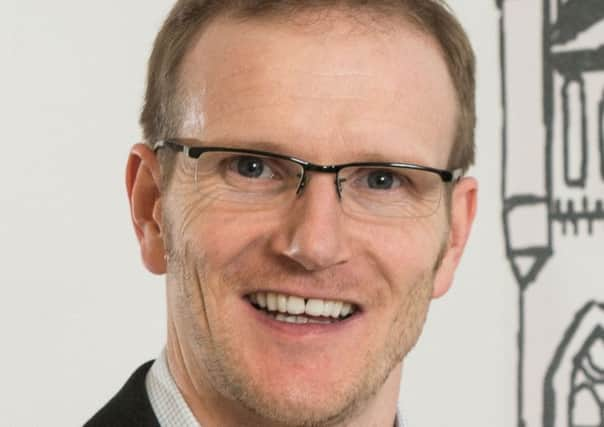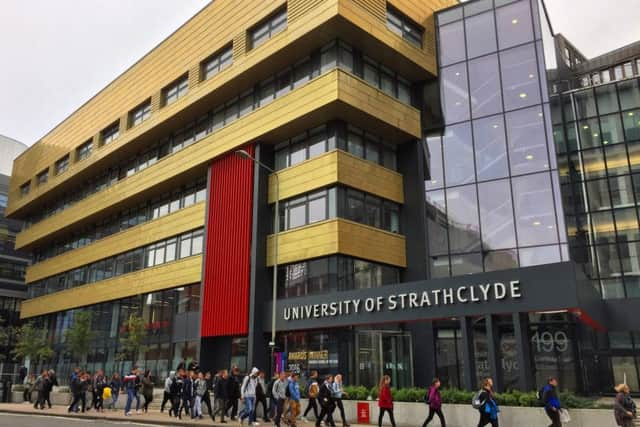Elite MSC students offered additional bursaries


A major revamp of the Applied Economics MSc at Strathclyde Business School aims to produce a generation of ‘super economists’ with skills beyond the world of number-crunching.
The Fraser of Allander Institute (FAI) has played a key role in a substantial refresh of the degree with a clear focus on employer needs. The FAI is also offering a number of bursaries to attract elite students to the scheme.
Professor Graeme Roy, director of the FAI, explained: “We are pleased to offer six partial fee bursaries of £6,000 to excellent UK/EU and overseas applicants. These bursaries will be awarded to candidates who can demonstrate a clear passion for pursuing a career as an applied economist.


“Economists are hugely in demand at the moment – uncertain times call for clear economic thinking. And in Scotland there are more job opportunities for economists than ever before. The Scottish Government, the UK Government, businesses, the Scottish Fiscal Commission and academic institutions like the Fraser of Allander are all seeking to recruit well-trained economists.”
With this in mind, Strathclyde’s refreshed MSc in Applied Economics is designed for aspiring professional economists. What sets the course apart from many other postgraduate courses in economics is that, alongside developing students’ technical and analytical skills, Strathclyde focuses on providing practical experience in how these skills can be used to solve real world economic problems.
With the FAI’s extensive links with government, think-tanks and the business community, students have an excellent opportunity to engage not only with economists at the cutting edge of applied research, but also with real-world decision makers in industry and public policy.
The programme was first launched five years ago. Last year, as a key part of the Department of Economics, the FAI led on a refresh which has seen a number of exciting new features introduced for the 2018-19 intake.


Professor Roy added: “We started with a consultation with key stakeholders, including graduates and past and potential new recruiters of economics graduates. A strong theme in the consultation responses was to stress the importance of preparing students, not just with core economics skills, but also the key transferable skills that are important for the real world.
“We responded by developing a number of distinctive new elements of the programme, including a new core professional development for economists class where students will have the opportunity to develop their skills in communication, problem solving, project management and leadership. As someone who has worked in senior economist roles in government and recruited a large number of economists over the years, I know first-hand how valuable these skills are for employers.”
Another new element is the economic appraisal and modelling class. These skills lie at the heart of what most economists in business and government do on a day to day basis. The course provides students with insights not only on how such frameworks can be used to inform decision making but how to best interpret and communicate the results.
There will also be extensive networking opportunities drawing on FAI’s extensive contact list. This includes a policy forum run by the students, careers talks and participation in high profile FAI events and activities.
Students will have the opportunity to apply for work experience opportunities within the FAI and to write articles for the Institute’s blog and Economic Commentary.
Alongside this, the team will offer several summer projects sponsored by external stakeholders of the FAI.
Many of Strathclyde’s graduates have gone on to take senior positions in business, consultancy and within government.
Recognising that many people already in jobs already will benefit from expanding their toolkit, Strathclyde offers flexible study options including part-time degrees.
Graduate Mathilde Demey who did the full time course, said: “My previous knowledge in economics was definitely put to the test throughout the year. I enjoyed the fact that the electives we choose from are so different – from energy economics to international trade to environmental economics – which allowed me to gain a wider understanding of how economics can be applied in multiple sectors. It was also compulsory to attend forums throughout the year in which MSc applied economics graduates, or employees of well-known economic businesses, spoke to the class about what they do, as well as about the opportunities we have with this degree.
“Before coming to Strathclyde, I had no idea what I could do with such a degree, but both the forums and the career service sessions have given me a concrete understanding on what I’d like to do.”
To find out more about the programme, please click here